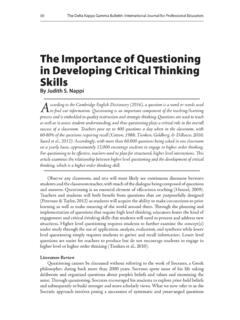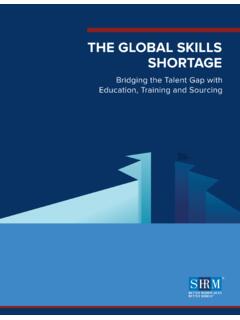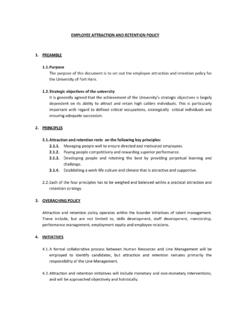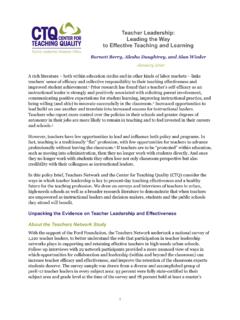Transcription of CRITICAL THINKING AND TRANSFORMATIVE LEARNING
1 Journal of Innovation in Psychology, Education and Didactics Vol. 22, No. 1 2018 103 - 114 CRITICAL THINKING AND TRANSFORMATIVE LEARNING Mehmet AHIN a*, Hidayet DO ANTAY b a Ahmet Kele o lu Faculty of Education, Necmettin Erbakan University, Turkey b Institute of Health Sciences, Istanbul Medipol University, Turkey Abstract The traditional theories behaviorism, cognitivism, constructivism and connectivism are regarded as essential theories of LEARNING . However, transformational LEARNING theory works with CRITICAL THINKING in adult LEARNING .
2 This process is based on their experience and it is followed by the steps of THINKING and transformation process in perspective in ten phases. In addition, for CRITICAL THINKING , developing profound understandings regarding knowledge and skills in a certain domain is of high importance. CRITICAL THINKING , like TRANSFORMATIVE LEARNING , requires continuous use or internalization of them rather than rote LEARNING and retention of information. However, CRITICAL THINKING is the mandatory skill for this TRANSFORMATIVE LEARNING and change.
3 This study aims to present CRITICAL THINKING and TRANSFORMATIVE LEARNING in a comparative way to analyse the relationship between them. Key words: adult LEARNING , CRITICAL THINKING , TRANSFORMATIVE LEARNING 1. Introduction As far as LEARNING is concerned, people generally associate it with formal education at schools, colleges and universities. These are the formal LEARNING settings where people should get a good education. They agree that education may maximise the existing potential and capacity to find better and more satisfying jobs, earning more with the chosen career.
4 However, lifelong LEARNING covers all life LEARNING from cradle to death. In fact, schooling is only one of many diverse LEARNING ways as there are many other opportunities to improve knowledge and acquire the necessary skills to be used throughout life. In fact, lifelong learners are motivated to learn and develop because they want to learn and develop. It means it is a deliberate and voluntary * Corresponding author. Associate Professor Mehmet ahin E-mail address: M.
5 Ahin, H. Do antay/ Journal of Innovation in Psychology, Education and Didactics 104 act of individuals. People voluntarily develop and learn because lifelong LEARNING can enhance their understanding of the world around them, provide them with more and better opportunities to improve their quality standards of life. Finally, it serves to personal and professional development. Adults learn best when LEARNING is focused on adult students, which is called andragogy, the process of helping adults learn.
6 Malcolm Shepherd Knowles (1913 1997), an American educator, is well-known for the term Andragogy, which means adult education. Knowles states that andragogy is the art and science of adult LEARNING . Therefore, andragogy does not refer to any certain specific form of LEARNING or education. It refers to any form of adult LEARNING (Kearsley, 2010). Andragogy and pedagogy are different in that adults learn best when they understand why something is important and meaningful for them. They have to feel relaxed and free to learn in their own way.
7 Furthermore, LEARNING by doing or experiential LEARNING is preferred by adults. LEARNING time and place is determined by themselves. These factors and the processes in adult LEARNING are motivating and encouraging for them. A LEARNING theory generally defines and explains how an individual acquires, retains, and recalls knowledge when needed with the help of some general principles. The LEARNING theories are classified into two main categories: traditional theories and the theory of the digital age.
8 Traditional theories consist of behaviourist, cognitivist and constructivist theories. According to behaviourist theories, new behaviours are learnt or changes in behaviours occur by associating stimuli and responses in the form of habit formation. According to the cognitive approach, information that is processed in the mind or cognition helps to understand and remember what is learnt. For the constructivists, an individual constructs his or her own knowledge about the world around her or him depending on his or her own experiences or foreknowledge.
9 However, connectivism, promoted by Stephen Downes (1959-) and George Siemens (1970-), is claimed to be a LEARNING theory for the 21th century as the digital age. The theory explains complex LEARNING processes in the rapidly changing social digital world where we now live. In theory, LEARNING is explained as the connections within networks in our brains. The document entitled Council Conclusions by EUR-Lex (30 May 2016) stresses on developing media literacy and CRITICAL THINKING by making use of educational settings and training.
10 The document also calls the EU member states to pay much attention to creating and developing media literacy and CRITICAL THINKING or reflection in education and training at all levels. The same document mentions The Paris Declaration (17 March 2015) which emphasises that improving and enhancing CRITICAL THINKING and judgement skills of individuals is of high importance. The challenge is whether the education settings in the member country envisage M. ahin, H. Do antay/ Journal of Innovation in Psychology, Education and Didactics 105 focusing on the CRITICAL THINKING skills or not.



















